Dropshipping Terms Glossary for Beginners
Dropshipping is a new kind of online business, and it makes e-commerce much easier to access. With many amateurs coming into this market, it is important to know what people are talking about. So first thing first, let me introduce you to some of the most commonly used dropshipping terms.
1. Source
Basically, sourcing is the first important task for dropshipping beginners to finish. Simply put, sourcing is the action and process of looking for suppliers for your products to sell in your online store.
So how to do sourcing as a dropshipper?
This may depend on the niche of your online store, but for most dropshippers, the easiest way is by searching online. Simply type in the keywords of your product plus “supplier” in any of the search engines and wait for the results.
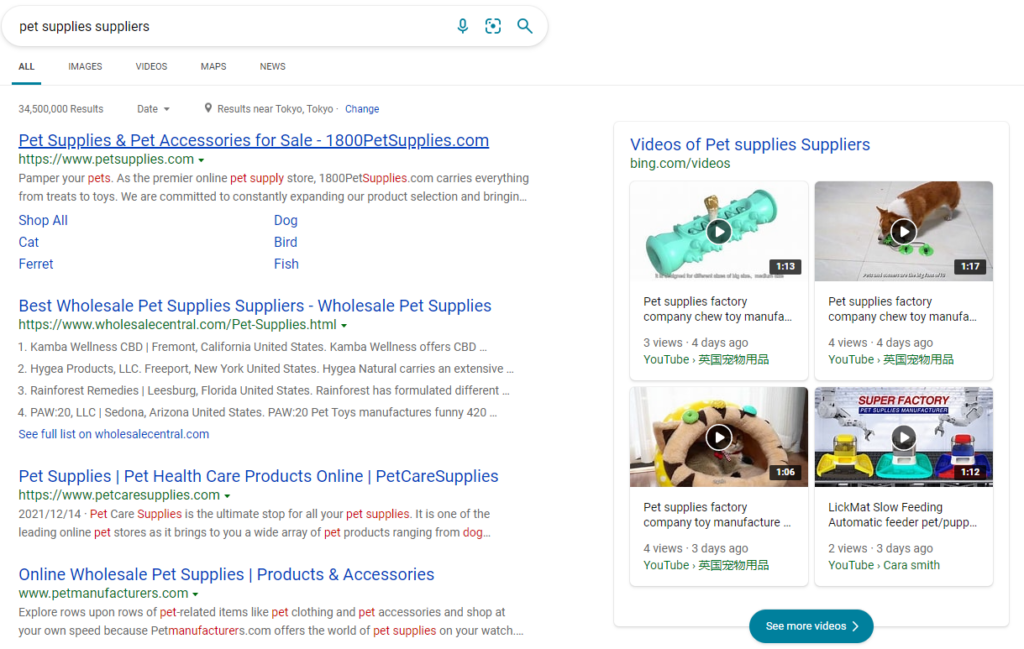
2. Listing
Listing is another commonly used dropshipping term. As a dropshipper, you don’t actually store products, instead, you get them from your suppliers or agents. Listing a product to your store means you find a nice product from your supplier or sourcing platforms, and synchronize the details to your store.
This action is called listing, as you are adding the product to your selling list.
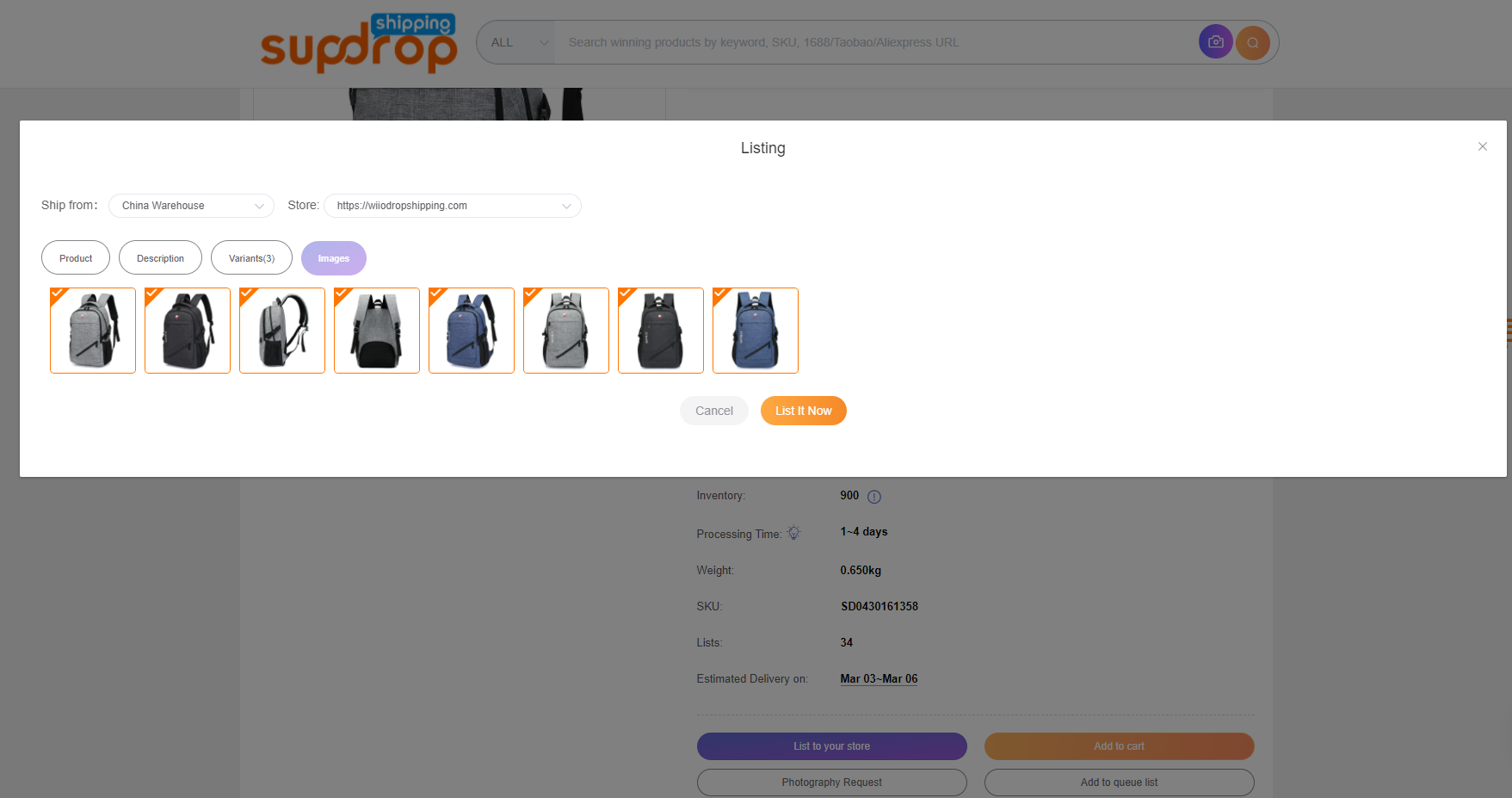
3. Import
Import is a high frequency word for international traders and programmers, yet it has specific meaning in ecommerce and dropshipping industry.
It is common now for dropshippers to work with order fulfillment suppliers, and sometimes they are not integrated with certain marketplaces, like Amazon. Therefore, dropshippers will have to download a csv file recording certain orders from their stores, and upload the file to the fulfillment supplier’s system. This action is called importing orders.
Sourcing providers are also common now, but most of them only provide a pool of products from their own suppliers. Very few sourcing platform, like Supdropshipping, allows dropshippers to source products from other websites, like 1688.com. When you do this, you have to input the page link to the system, so that this product is put into the pool, and ready for you to list to store.
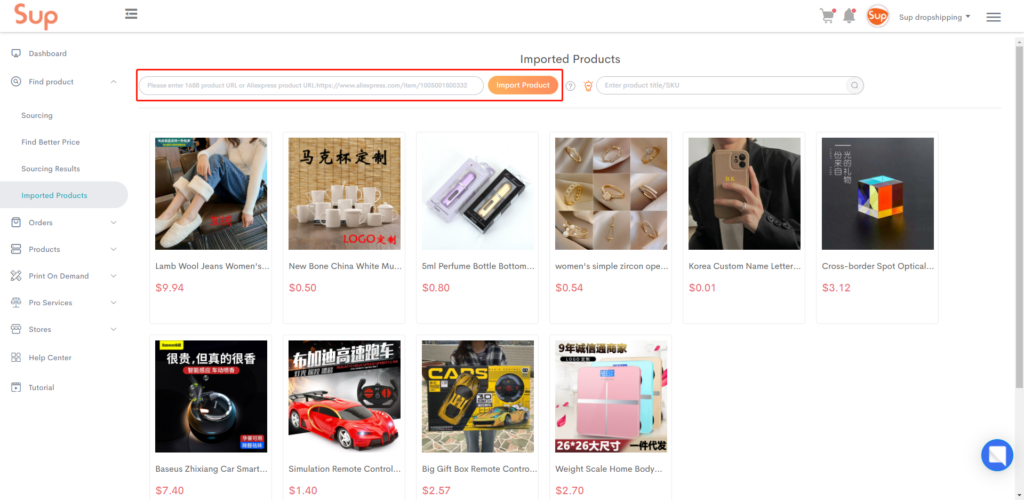
4. Connect
If you are working with a dropshipping platform, you will need to authorize your store to allow acquiring the orders information. When you have successfully linked your store with the platform, next step is to connect your products. This means you will need to find a correspondent supplier to purchase your product from.
Sometimes the platform will provide you with a list of supplying products similar to yours, and you still have to check and confirm before connections. You definitely don’t want your customers to receive a different product from what they intended to buy.
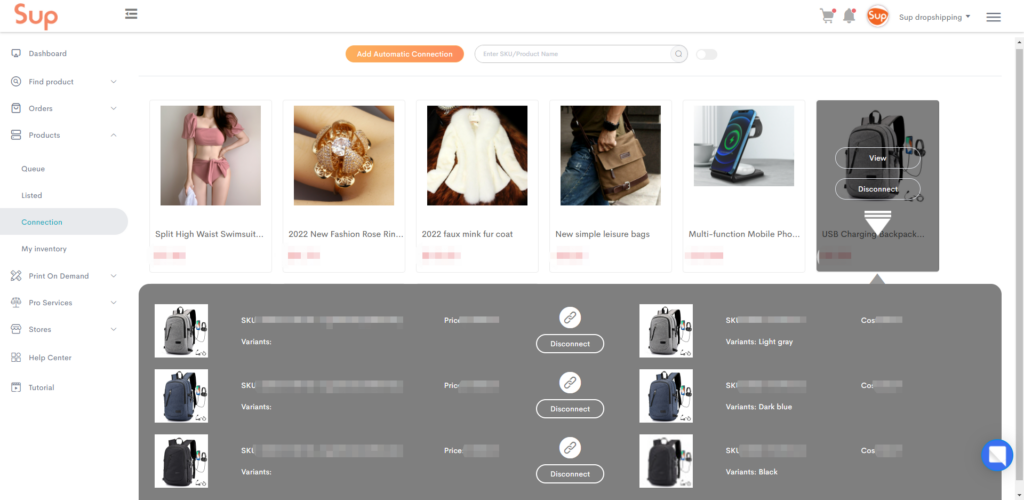
5. Niche Market
A niche market is a small part of a large market, aiming to meet the demands of a small number of relative customers. For example, women’s dresses is a large market with the departments “casual dresses” and “work dresses” included. In this case, work dress is a niche market. So are casual dresses.
Focusing on a small segment makes you put your efforts into a specific area, increasing the chance of success. And you can easily become an expert when you have enough time to study it. In addition, it helps you avoid competing with general sellers. Loyal consumers are even willing to buy your products at a higher cost.
To find a niche market, there are some steps you can take:
- Explore what your interests and strengths are
- Decide on some niches you want to enter into
- Do enough research on the niches and check some data from your competitors or relative tools
- Narrow the several segments to one profitable niche that is neither over-saturated nor too small to expand
If you are not sure about which category to start, you may refer to our classification.
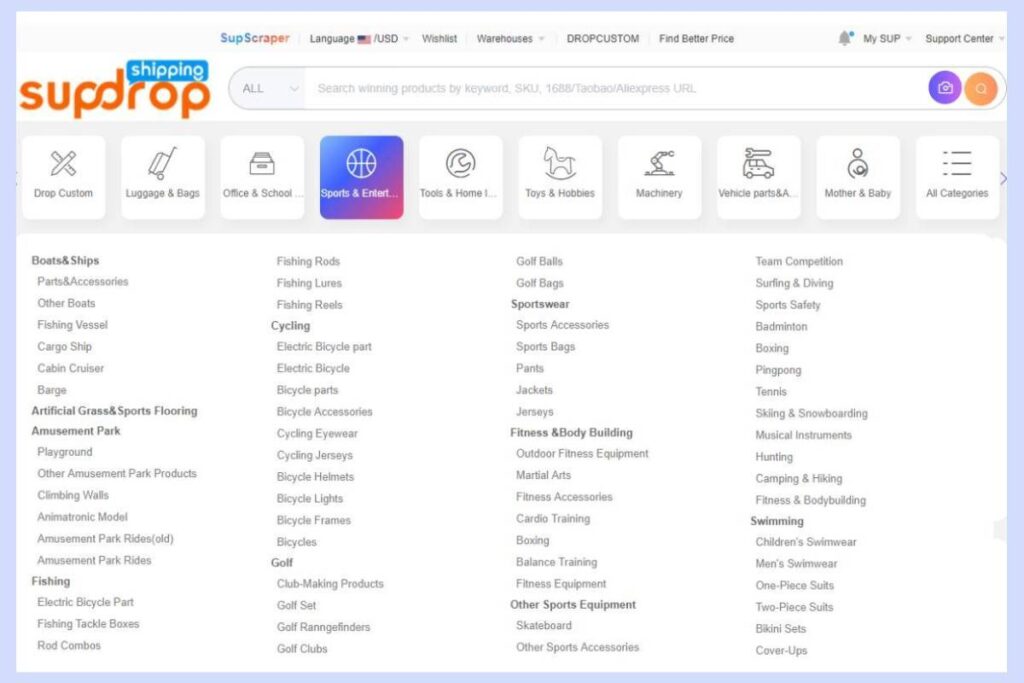
6. Inventory
Inventory is a frequently used word, referring to the storage of products for sale in the seller’s or manufacturer’s warehouse.
In the old days, online sellers had to buy goods in advance and held inventory in their warehouse. That means they had to invest a large sum of money even before they began to sell.
Dropshipping allows you to sell with no inventory. This makes online selling much easier, and only a little upfront investment is needed. However, with no inventory, your business relies largely on your supplier and shipper. It may be affected during the holidays, or become unstable when diseases and wars breakout.
Some large agencies provide local warehouses to avoid this problem. Though you may need to buy some products in advance, it is definitely worth it.
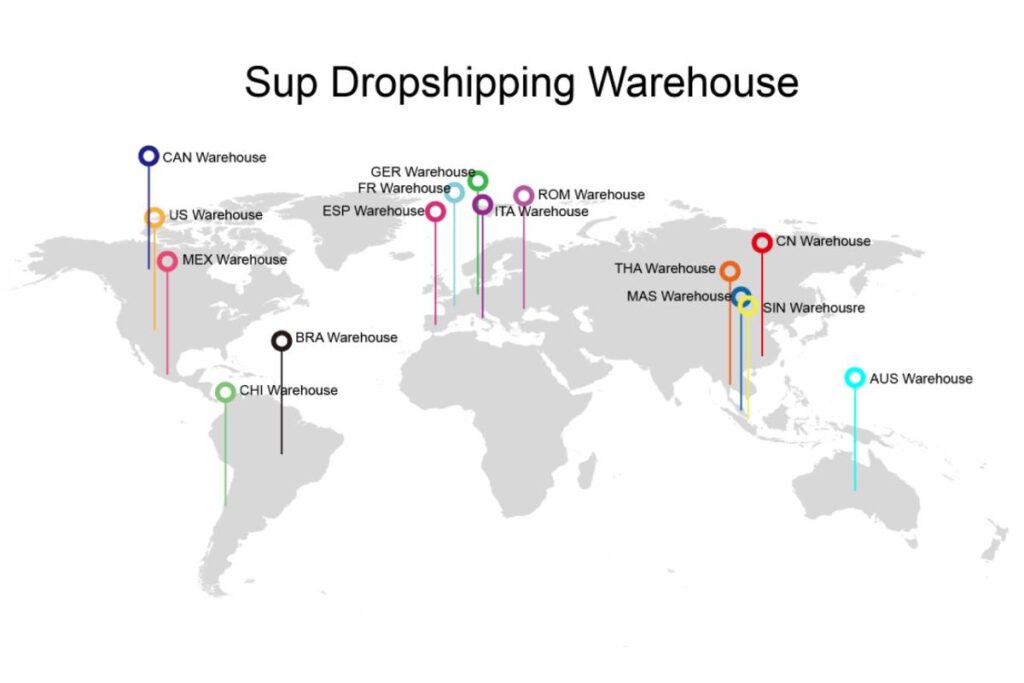
7. Fulfillment
Fulfillment is defined as the process of an order from placed to received.
In the traditional fulfillment process, the customer places an order in your store. And then you are responsible for picking up the order, packing it in your warehouse, and finally shipping it to your customer.
Nowadays, many dropshippers opt to work with an agent to fulfill their orders. This fulfillment process works as follows:
Step 1 The customer places an order in your store.
Step 2 You sync the order to your supplier.
Step 3 Your supplier packs the item accordingly.
Step 4 The shipping supplier delivers the package to your customer.
With the help of a dropshipping agent, you can save time to concentrate on the marketing and sales of your products. Moreover, professional and experienced agents can offer suggestions to help you solve problems in managing store and orders.
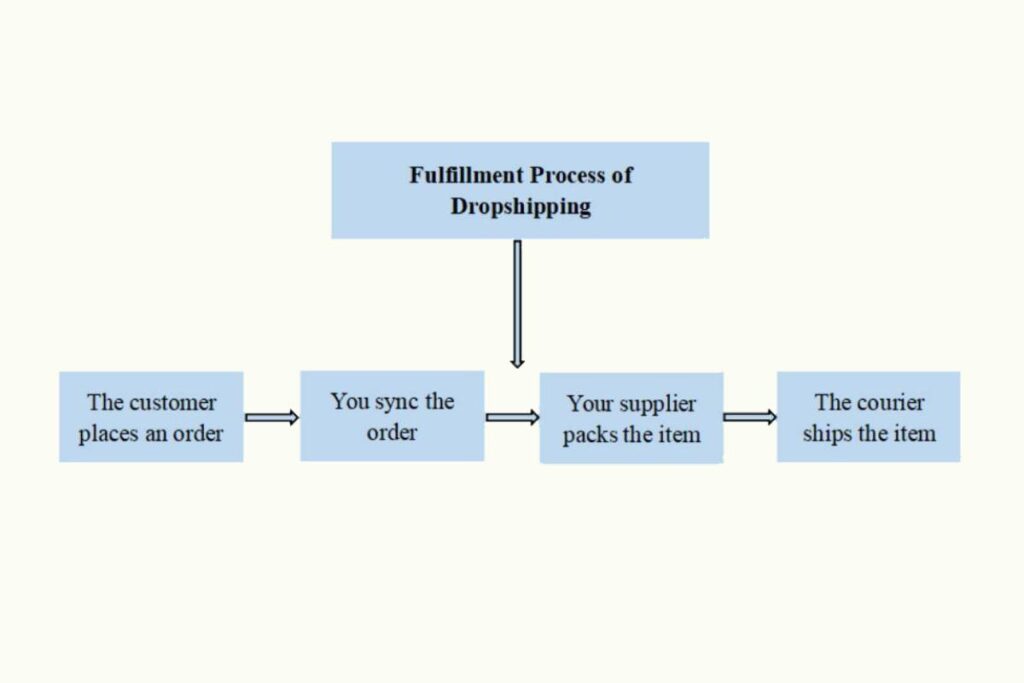
8. POD
In the dropshipping industry, print on demand or POD is a process where an order of a customized product is printed, packaged, and shipped by a service supplier. Products can be customized including clothing, mugs, phone cases, bags, posters, towels, stationery, jewelry, or anything your supplier may offer.
If you work with a POD service provider or supplier to sell a customized product, the process should be like this:
- You make a design for the customized product and send the design to your supplier
- You list the customized product and sell it in your online store
- Your customer orders the product in your store
- Your supplier produces and ships the product to your customer
With POD service, you can sell your own designed goods without upfront payments. You pay only when you receive orders. Additionally, these designed products are unique in the market. That makes them easy to sell and good for your brand building.
SUP DROPCUSTOM allows you to design and sell your own products. There are many different product mockups and free patterns for your choice. What’s more, your customers have a chance to buy their designs if you integrate SUP DROPCUSTOM Creator into your Shopify store.
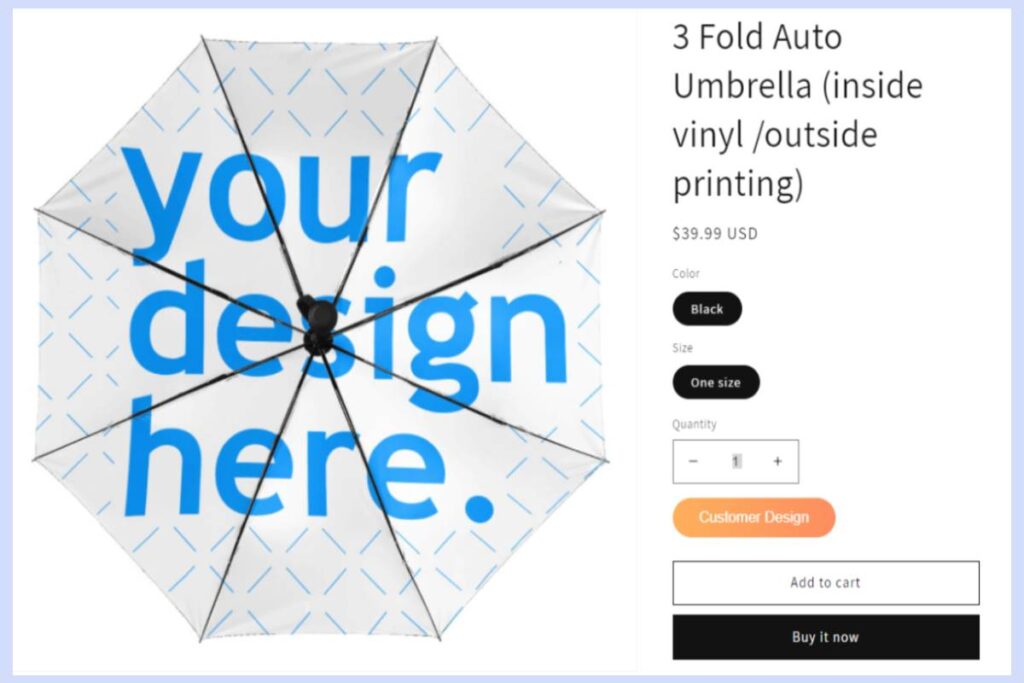
9. Wholesale
Wholesale is a way of trading goods in large bulk with lower prices. Retailers can reduce costs of their products by working with wholesalers, but they have to keep an inventory with an upfront investment.
With the development of eCommerce, wholesalers or manufacturers in China now allow dropshippers to purchase with little or no MoQ. Overcoming language difficulty, you may cooperate with them to get cheap goods to sell without inventory. The only problem is that you may have to arrange the logistics on your own, as some factories in China do not provide export service.
It is more convenient to work with a dropshipping agent. Fluent in both Chinese and your language, they can offer great help in sourcing products and arranging order fulfillment service.

10. Profit Margin
Profit margin is a number in the form of a percentage, used to measure how much a trade can earn for you. There are two kinds of profit margin in a dropshipping business, gross profit margin and net profit margin.
Gross profit margin:
The gross profit margin usually means a rough profit ratio, the formula is
Gross profit margin=(Sales-Cost of goods sold)/Sales*100%
For instance, you sell a soapbox at the price of $6, and you import it at a payment of $3. The cost for the advertisement of this order is $2, then your gross profit is (6-3-2)/6*100%=16%.
Net profit margin:
The net profit is your gross profit that you deduct other expenses like the rent for your office, the tax, and other costs from, often used for measuring the profit of a business. The net profit margin formula is
Net profit margin=(Sales-Cost of goods sold-other expenses)/Sales*100%
If your sale of one month is $5000, your importing and advertising cost is $1000. And your other expenses including employees’ salary, rent, and tax is $2500. Your net profit margin will be (5000-1000-2500)/5000*100%=30%
The gross profit margin of a product is a quick and easy answer for you to decide if you should start selling it. The net profit margin is an important number suggesting if you are really earning money by selling this product. Selling is about earning, so it is critical to completely understand how much your profit margin is and think comprehensively before and after you decide to sell a specific type of product.
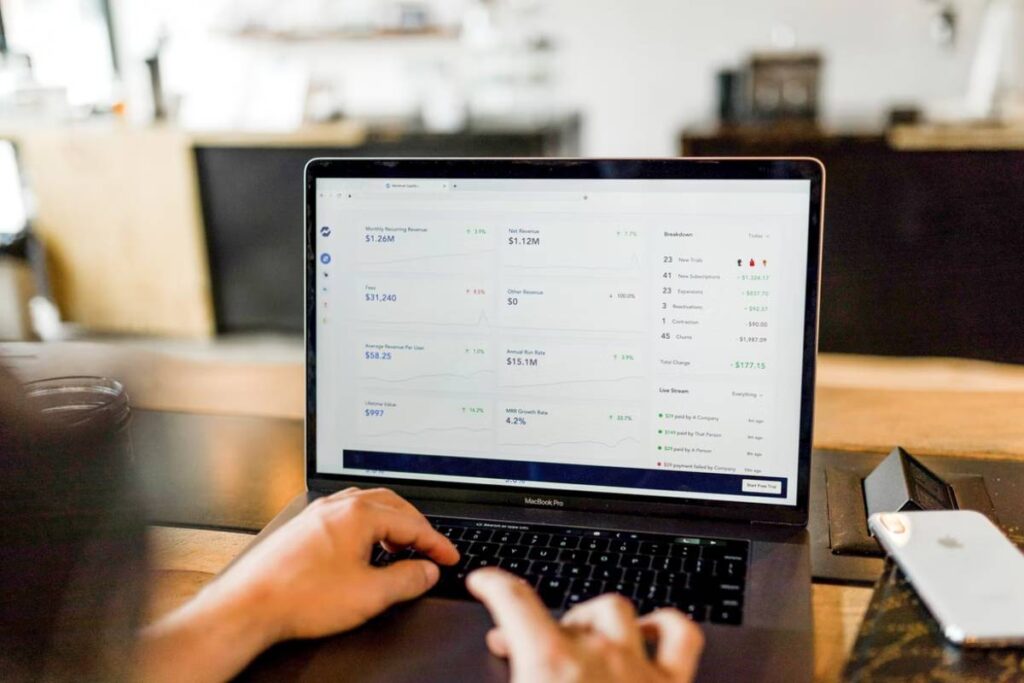
If you have any other terms hard to understand, please leave your comment and we will make updates soon!
Enjoy Sup Dropshipping, and if you have any questions, please feel free to contact us.
About the Author

Jack Han
Jack is a SEO manager and blog writer at Sup Dropshipping. He holds an MA in Linguistics and Education. He has over 10 years experience in E-commerce, and 5 years of experience in SEO. Jack is an enthusiast to share his recent knowledge learnt from peer experts in the industry.
9 responses to “Dropshipping Terms Glossary for Beginners”
-
This was really informative.
-
Ahmed here
please I want to know what are the costs in addition to your price of item, I want to work with you only on SUPDROPCUSTOM, I’m I the one bearing the cost of the shipping ? please specify to me my basic cost so that I can know to what percentage margin I can fix my price. thanks
-
Hi Ahmed, yes, you will be bearing shipping cost for your products. It will be shown when you have chosen the source warehouse, destination and shipping method.
If you are selling to EU countries, you would also have to pay tax or use IOSS.
Here is a post to help you learn how to price your store product.
-
-
And I have problem with listing
-
Your dedicated agent has contacted you, please check inbox.
-
-
I can’t understand this bisnuis please you tarain mme
-
Hello Salman,
If you want to learn how to start dropshipping business from 0, please search that in Google or Youtube.
You can find many tutorials and videos teaching starters for their business.
-
-
Hi sir

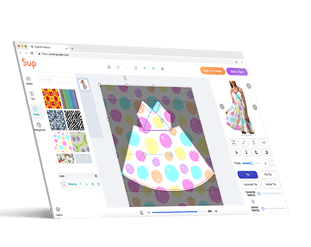
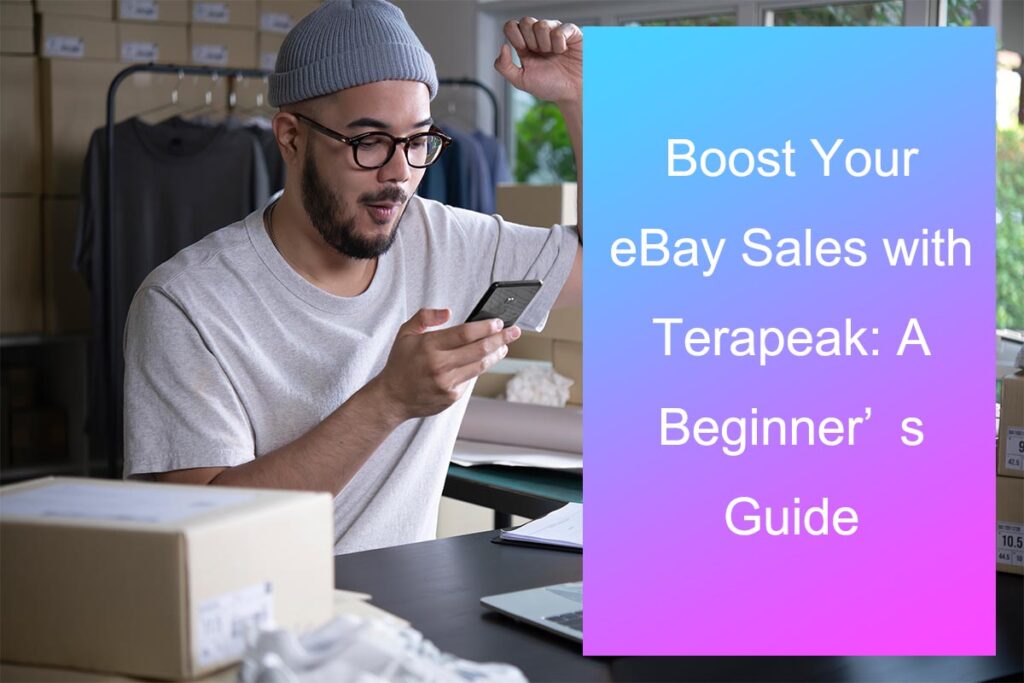
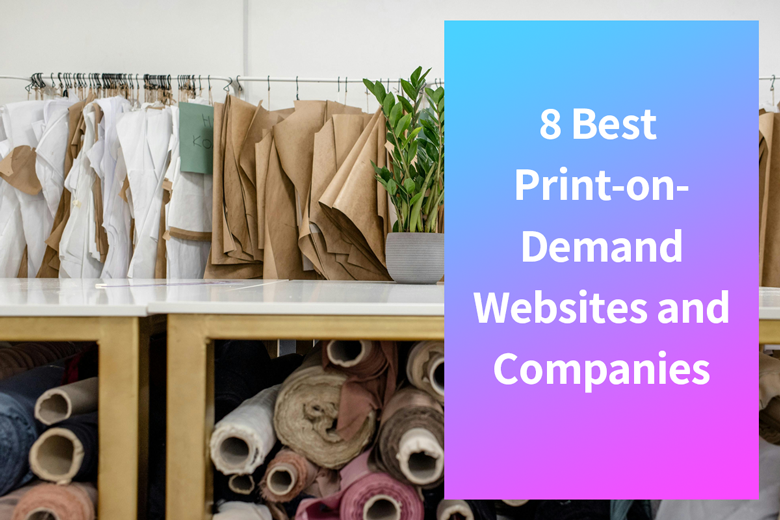

Leave a Reply